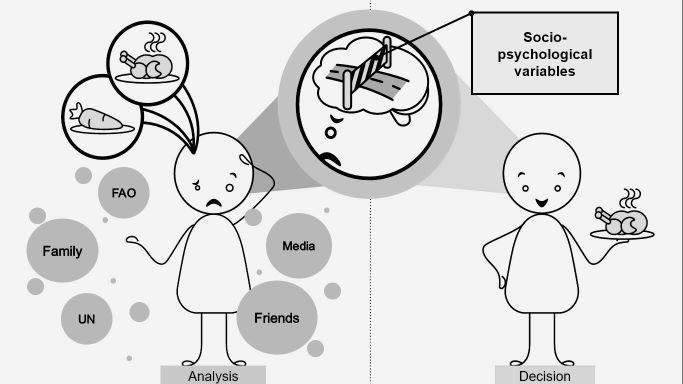Social Innovation and the Adopter's Cognitive Propensity: A Process Perspective of the Adoption of Plant-Based Diets

Although there is great interest on the global stage in promoting plant-based diets (PBDs) to achieve some of the Sustainable Development Goals (SDGs), the results of their adoption are unsatisfactory. Academics propose to entangle this effort by addressing the challenges of dissemination of social innovations (SIs). SIs generate different adoption attitudes, some of them related to socio-psychological aspects on the part of potential adopters. This research work aims to better understand the adoption of SIs, such as PBDs, which may induce socio-psychological concerns in potential adopters.
After a first part of the research in which PBDs are framed as a SI with several socio-material characteristics and considering the socio-psychological states of the potential adopter, the research goes on to postulate that current perspectives on SI dissemination and adoption offer partial insights to understand the shift from an omnivorous diet to a PBD. To overcome these limitations and derived from the first part of this research, a holistic process perspective on the decision-making of the potential adopter is proposed and employed, in which his or her perspective is also considered.
An exploratory, theory-building, and abductive study is carried out based on the cross-analysis of three different adopter profiles: adopters of a PBD, and adopters and potential adopters of generations Y and Z, residents or who until recently had lived in the city of Barcelona (Spain), with a total of sixty-nine semi-structured interviews of an average duration of forty-five minutes.
Through the analysis of the data collected, it is observed that the adoption of PBDs is a three-stage process: Communication, Imitation and Acceptance that starts with an initial contact between a prior and a potential adopter and that the potential adopter goes through stage by stage and makes decisions on whether to progress to the next stage. The social environment of the potential adopter as well as his or her interaction influence each stage of the process, modulating his or her psychological states, and thus his or her cognitive propensity is also influenced in the progress of the adoption process. Thus, the potential adopter must overcome his or her psychological barriers to reach a cognitive consistency favorable to the evolution of the decision-making process related to the change of dietary patterns.
As an academic contribution, this dissertation provides more insights on the diffusion of SI from the adopter's perspective (a new conceptual framework for the adoption process of SIs). The cognitive propensity of the potential adopter must be positive to achieve adoption and regular use of the innovation; therefore, the potential adopter has to be able to overcome his or her psychological barriers that are modulated (triggered or diminished) in his or her interaction with his or her social environment. From the practitioner's point of view, a new model is outlined for a comprehensive understanding of dietary change from the adopter's perspective with new socio-psychological insights emerging from the adopter's viewpoint. In addition, the new model offers renewed opportunities for practitioners in terms of PBD implementation, use and policy. That is, the model provides solid clues for producers of plant-based food seeking strategies for PBD promotion marketing. Moreover, policy makers can draw lessons from the new model to drive the path towards achieving some of the SDGs.